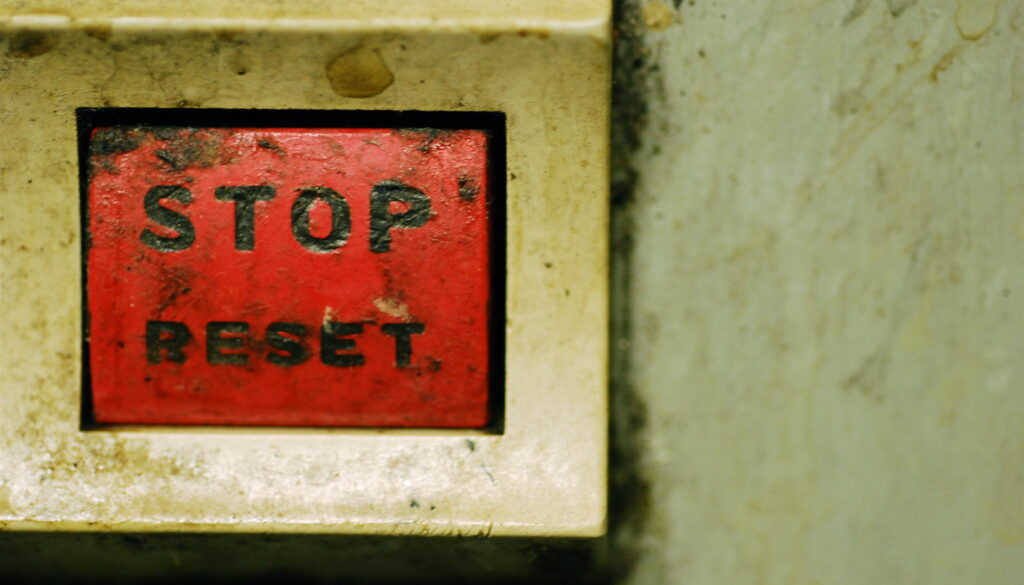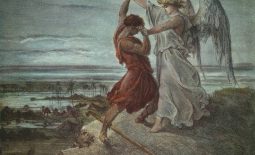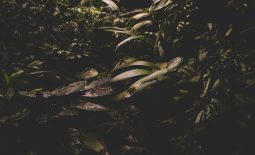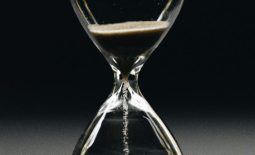The Great Reset
There’s a Dutch saying ‘er op of er onder!’, which translates literally as ‘on top of it or underneath’, meaning that we will either succeed gloriously or fail spectacularly but we need to give it everything we’ve got because the time is now.
Brothers and sisters, ‘l’et kazot’ (Esther 4:14), for such a time as this—the time is now.
For the last number of weeks, I’ve been elucidating different aspects to the pandemic in my preaching. We have examined the sanctity of our behavior, the state of our souls and the conditions of our material world. It is always my intention to be thoughtful and evenhanded in the Torah I teach and to balance my ‘priestly, rabbinic and prophetic’ roles. Still, I knew that when it came to Parashat Behar, thoughtfulness would need to find expression in a sense of urgency.
The moment is now.
I invite you to close your eyes and take some time to sit with the weight of our current predicament. Lean into what you know about this crisis. Acknowledge your own fear and discomfort. Give voice to the newness of this time and how frightening that can feel. We are on the frontier; setting sail in uncharted territory. We fear what COVID-19 will do: to our selves, our loved ones and our world. Many of us may already feel its bite. Some of us may already have been sick or know people who have gotten sick or, God forbid, who have perished. We may have lost our jobs or lost business. Some of us may feel the sting of isolation and experience the deterioration of our mental health. We may be financially insecure, lonely, anxious, vulnerable. All these emotions may feed into our worst fears, into ‘what if’s’ and ‘now what’s’ and ‘what will happen next?’
I feel those very things myself. For the past two months, I’ve felt my wellbeing plummet. Things are hard and they are likely to get harder. I, too, have struggled with fear, anxiety, loneliness and an emotion for which a new term should be coined: an admixture of immeasurable sadness and unfettered rage.
It is okay for us to sit with that, to hold our hearts in the palm of our hand, to acknowledge the ‘dark night of the soul’. Observe your feelings from a compassionate, loving distance. This is scary and this is real. ‘Gam ki elech me’gei tzalmavet…’ – ‘Though I walk through the valley of the shadow of death…’
Now, draw a deep breath. Fill your lungs with air, with life, with hope. And I invite you to dream. To dream big and bold, to dream of a world that we should and could build upon the rubble of the world that we have seen collapse these last few months. A world of bold ideas and big change. A world of clean cityscapes where people for the first time in decades can see crisp, blue skies. A world where our carbon emissions can be reduced. A world of ceasefires and peace treaties. A world without war, without poverty, without authoritarianism and oppression. A world of the kind of bravery our doctors and nurses display daily on the frontlines. A world filled with the everyday kindnesses of families reconnecting at home, of friends reaching out to each other and of strangers in the public sphere. A world where we can remit debt, reorient our economic priorities, where the human spirit can flourish and human ability and need are balanced against each other. Where we extend our hand in friendship and solidarity across the globe; where we can relearn to walk the earth with gentleness. A world that will be Eden once again.
Of course, each person’s dream of that world will look somewhat different (although I am convinced that many people ultimately want the same things!) We all filter our priorities through the lenses of our worldview. We all emphasize our own keen sense of justice. That doesn’t mean, however, that we cannot empathize with the deeply-felt sacred projects of others. What we are offered now universally and collectively—our individual convictions notwithstanding—is an opportunity to pause, to reflect and to press the Big Reset Button. We must think deeply, boldly, creatively, independently. We must allow our minds to soar with the grandeur of untrammeled moral imagination.
If our Torah did it three-thousand years ago, so can we.
There is a reason why I am talking about this now. Big, bold dreams of second chances and a humanity redeemed. This is just not the imagery of the campaign trail in our hyper-partisan world or the lyrics of the protest songs of a generation. This transcends political ideology, national identity or personal philosophy. The Torah, in her bold proclamation of the Jubilee Year, knew this. For weeks, we have studied the minutiae of Leviticus; we have held fast to Priestly purity and Rabbinic discipline. Now is the time for Prophetic vision.
‘When you enter the land that I assign to you, the land shall observe a Sabbath of Adonai… you shall count off seven weeks of years—seven times seven years—so that the period of seven weeks of years gives you a total of forty-nine years. Then you shall sound the horn loud; in the seventh month, on the tenth day of the month—the Day of Atonement—you shall have the horn hallow the fiftieth year. You shall proclaim release throughout the land for all its inhabitants. It shall be a jubilee for you…’ (Lev. 25:1-10)
Sit with these words—the famed words of America’s Liberty Bell. ‘You shall proclaim liberty throughout the land’. There will be the beauty of Eden, the grace of Shabbat, the forgiveness of Yom Kippur, the redemption of the Shofar: all aligned in perfect union for this Great Reset, where all debts are remitted and all enslaved people are freed.
A world that is better and kinder than the one we live in—that is the Torah’s bold message; our love-letter from God. Take a deep breath. Can you hear its call ring in your ears, see it shimmer on the horizon of your mind?
Just as we sit with the darkness, let us dwell in the light.
It is hard to fathom the courage it took for a culture to compose such a text as this; that among the sensible conservativism of Leviticus, among the hierarchy and patriarchy of the ancient Israelite way of life, the sacred voice of Torah could sing such a song of freedom.
I encourage all of us to sing our own song of freedom. To have conversations and take actions to birth this new world into being. We can rise with healing in our wings. We can invite our souls into imagination—the type of imagination we had as children; that is limitless, empowering and visionary, where all things are possible.
Brothers and sisters, the pandemic will end. The Torah knew crisis and knew that crises—the wars, famines, plagues and exiles of its day—were fraught with immeasurable suffering, but were also of limited duration. The Torah knew the trauma of the Exodus and forged out of this pain, respect for the vulnerable, dignity for the marginalized and love for the stranger. The Torah knows that we can legislate for and build a world such as this, for a time such as this—l’et kazot. To confront the old and imagine the new.
May we all be blessed and privileged to be enjoined in this hopeful, life-giving, sacred obligation.




